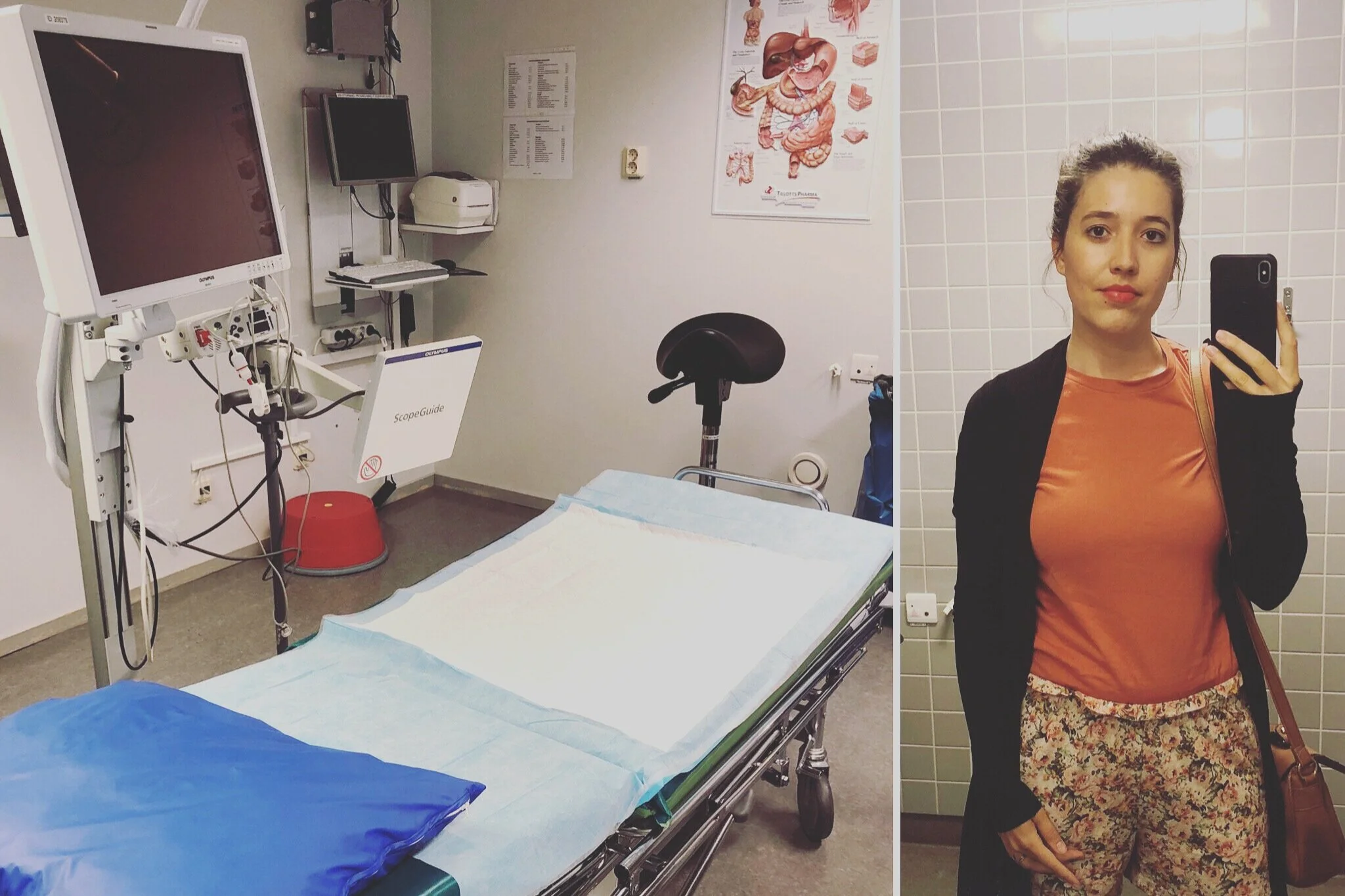Colonoscopy without sedation - a different perspective
Colonoscopy without sedation - a different perspective
I always dread colonoscopies. I dread the diet change, the nauseating preparation drink, diarrhea, and how I feel unwell before and after the scope is over. In Sweden (and probably in many other parts of the world), anesthesia isn't administered, which means you are awake for the entire experience. This reality was hard to accept because, in South Africa, the worst part about my endoscopic procedures was the preparation that went into it.
What is a colonoscopy?
A colonoscopy is one of the various endoscopic procedures used to inspect the inside of your body. During a colonoscopy, the scope, a long, thin, flexible tube with a camera, is inserted through the rectum. The purpose is to inspect the colon and, in part, the start of your small intestine (the ileum). The doctor confirmed that the scope used in my procedure was 1.6m long (5' 3"), but he assured me that he hadn't inserted the entire tube in, haha!
Preparing for a colonoscopy - mentally.
There is so much that goes into physically preparing for your endoscopic procedure, but what about mentally? The mindset you choose as you walk into the procedure is even more important when you go in without sedation.
It is far from comfortable, you are in a very vulnerable position, and you will experience pain. But imagine you could see past the pain, imagine you could see past the vulnerability. What's possible, then?
Shifting your perspective
Without sedation, you are getting a very rare and intimate glimpse into your body. What if you chose to witness your body with a sense of gratitude and awe?
The ileum is beautiful; it almost looks like a greyscale image of the coral reef.
As I watched live footage of my colon and ileum, I felt a deep sense of gratitude, and I thought, 'wow, you do so much for me, thank you!'
Try not to resist the experience, allow yourself to be in that moment, and witness your body in this intimate way.
Witness the journey
Over the past three years of undergoing endoscopic procedures and two surgeries, I have seized the opportunity to witness my healing journey.
My first few experiences were at the peak of my illness, before undergoing my second surgery to remove 20cm of my intestine.
My two most recent experiences have been during what I like to call, my journey into becoming alight with healing.
I can compare each experience, the mental picture of severe inflammation, and the picture of a healing intestine - smooth and beautiful. Yes, I just called my organs beautiful.
Just breathe
It's easy for us to get stuck in our heads when we experience pain. We go into story-mode and wish for the moment to go away, and we create a multiplier effect of suffering on top of the pain that we already are experiencing.
But what if we focused on our breathing instead? What if we released the fear and released the need to change that momentary experience and breathed instead? How will you experience pain, if you do not spend all your time resisting it?
There will be painful moments during your procedure. Use your body's cue of tensing up as an invitation to breathe deeply.
4, 7, 8 breathing
The 4, 7, 8 breathing technique helps to soothe and calm your mind and relieves stress.
Here's how it works:
Practice breathing into your belly during this exercise, not your chest.
Close your eyes if it feels safe to do so.
Breathe in through your nose for a count of 4
Hold your breath for a count of 7
Breathe out, releasing your breath slowly and audibly through your mouth for a count of 8.
I often use this breathing technique to calm my mind and bring me back into the present moment. I did a few sets during my last procedure, and it helped to calm my mind and my body.
In my experience, thoughts influence feelings, and feelings influence our actions and, therefore, our lived experiences. I hope that by shifting your perspective and reframing your thoughts, you can turn your experience into one that serves you.
Comment in the post or tag me on any of my social pages with your lived experience.
If you believe this will help anyone you know during their next procedure, share it along.





